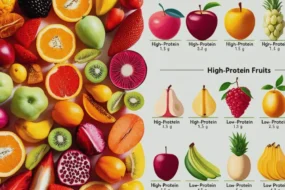
When mums are diagnosed with gestational diabetes, many questions come to the forefront, especially around their favourite sweet treats. The good news is that you don’t need to abstain completely.
While sugary treats are no longer recommended for insulin-dependent diabetics as they can cause spikes in blood levels and hypos, a small amount of dark chocolate can be a safe choice. Dark chocolate has less refined sugar, and when paired up with foods that contain carbs, it releases glucose slowly, keeping your blood levels more controlled.
Explore the positive aspects of mindful eating, critical to maintaining a healthy relationship with food while enjoying the delicious things you love.
Can You Eat Dark Chocolate with Gestational Diabetes?
Yes, you can eat dark chocolate with gestational diabetes. Dark chocolate, especially those with a high cocoa content (70% or more), has less sugar than milk chocolate.
What is Gestational Diabetes?
Gestational diabetes mellitus (GDM) is a temporary condition that happens during some pregnancies and usually disappears after pregnancy. Unlike Type 1 diabetes (T1D), where the pancreas stops producing insulin altogether, gestational diabetes is caused by an increase in hormones from the placenta that make the body more insulin-resistant.
This means that even though insulin is still being produced, it is less effective, and the body cannot produce enough to keep up with the increased demand. This condition often becomes present after the first trimester when more insulin is required to manage blood sugar levels effectively.
Gestational diabetes usually begins around week 20 to week 24 of pregnancy when the baby’s vital organs have already developed. This condition can happen to about 7% of pregnant women and may vary by region. It’s typically detected between weeks 28 and persists until delivery.
If poorly managed or undiagnosed, it can result in the baby being heavier, sometimes over nine pounds, and lead to a sudden drop in blood sugar after birth. Managing it often requires a change in diet, frequent blood testing, and self-monitoring to avoid complications.

Dark Chocolate’s Health Benefits
One reason I love dark chocolate is its health benefits for people with gestational diabetes. If you choose dark chocolate with the right amount of cocoa, you can enjoy its positive impact without worrying too much about your blood sugar.
A quick review of studies shows that dark chocolate contains antioxidants and flavonoids, crucial in combating oxidative stress. This is especially helpful for people managing their overall well-being during pregnancy.
In a 2018 study, researchers found that eating 30 g of 84% dark chocolate daily for 8 weeks helped reduce inflammatory biomarkers in people with type two diabetes.
This also supports heart health, essential when dealing with gestational diabetes. If you want to enjoy this treat, remember to stick to moderation and choose chocolate with a high cocoa content to gain these top tips for reducing inflammation and stress.
Studies suggest that moderate consumption of dark chocolate can improve health, especially for those with gestational diabetes.
The rich flavanols in dark chocolate help enhance blood flow and reduce blood pressure, which is essential during pregnancy. You can enjoy this delicious treat without guilt, as it offers real health benefits when eaten wisely.
Additionally, dark chocolate contains essential minerals like iron and copper, which support vital bodily functions. There’s even a brain boost to consider!
A study on neuroplasticity showed that the flavanols in dark chocolate can help to protect the brain from injury and disease. So, even though you’re pregnant, you can still enjoy this dessert and gain some impressive benefits.
If You Feel Out of Control
Managing gestational diabetes can sometimes make you feel out of control, especially when cravings for chocolate hit.
With the strict limitations often placed on your diet, the desire for certain foods may feel like you’re dealing with forbidden fruit, creating feelings of deprivation. However, I advise my clients to take a more flexible and compassionate approach by focusing on intuitive eating.
By reconnecting with your body’s signals of hunger and fullness, and listening to those cues, you can find ways to satisfy your cravings without completely denying your desire. You can still enjoy a small dessert for gestational diabetes, like a portion of dark chocolate, if you do so mindfully.
Tips for Enjoying Dark Chocolate Safely with Gestational Diabetes
When managing gestational diabetes, you can still enjoy chocolate by controlling your blood sugar levels. Choosing dark chocolate with a high cocoa content (like 70% dark chocolate) is a better option because it has less sugar and is easier for your body to handle. Here are some helpful tips:
- Opt for treat-size portions. Keeping the quantity small and restrained around 20g-30g is an excellent limit to avoid overindulging.
- This way, you can still enjoy chocolate without causing sudden spikes in blood sugar levels. Instead of eating chocolate straight, consider having it as a snack or after a balanced meal.
- Pair your chocolate with protein or fat to slow down the release of your glucose into the bloodstream. Good options include nuts, seeds, peanut butter, or almond milk.
- Avoid chocolates with added extras like Caramel, Honeycomb, Dried fruit, Hard, crispy candy shells, Creme eggs, or sweet fondants.
These tips can help you get the maximum effect from small amounts of chocolate without erratic sugar levels. Break larger pieces into smaller bites or stick to individual portions to keep things under control.
Does Gestational Diabetes Affect My Baby?
If gestational diabetes (GDM) goes undiagnosed or untreated during the first trimester, it can threaten the critical development of the fetus.
Starting in the second and third trimesters, higher levels of glucose can become evident, leading to an overweight baby, often over 9 pounds, and causing a severe drop in the baby’s blood sugar after birth, requiring close attention from doctors.
While GDM doesn’t usually cause congenital disabilities, managing it is essential for the health and proper development of your baby. Along with medical guidance, incorporating affirmations for healthy eating can help you stay mindful of your dietary choices, supporting both you and your baby’s well-being throughout pregnancy.
FAQ’s
Q: Does Dark Chocolate Raise Blood Sugar?
Dark chocolate is one of the best options for people with diabetes because it contains the least sugar, especially the 100% types without milk. These have the lowest glycemic index, meaning they cause a smaller spike in blood glucose levels compared to other sweets. Choosing chocolate with at least 23% cocoa can also help manage blood sugar better.
Q: Can I Eat Nutella with Gestational Diabetes?
Nutella contains around 58% sugar, making it not an excellent choice for those managing gestational diabetes. A standard 15g serving of Nutella has about 8.6g of sugar and 15g of carbs, which can complicate your diet.
While there isn’t a sugar-free Nutella option, a quick alternative would be to look for spreads with lower carbs or more real hazelnuts, which tend to be better for managing blood sugar. Ideally, aim for spreads with around 3g of carbs per serving.
Q: Can I Drink Chocolate Milk with Gestational Diabetes?
Chocolate milk is a good choice for someone with gestational diabetes; it can be enjoyed in moderation. Look for suitable options that are low in sugar and rich in calcium. Some brands offer versions specifically for people managing diabetes, which can help you still enjoy the taste without worrying too much about your blood sugar levels.
Conclusion
In conclusion, managing gestational diabetes doesn’t mean completely giving up on the foods you love, like dark chocolate or chocolate milk. By choosing suitable options with less sugar, enjoying treat-sized portions, and pairing them with other foods, you can maintain better control of your blood sugar levels while still satisfying cravings. Staying mindful of what and how much you eat and careful monitoring is critical to ensuring a healthy pregnancy for both you and your baby.
I’m Ayesha Zahid, a certified Nutritionist and Dietitian with over 3 years of hands-on experience helping individuals and families improve their health through nutrition.



